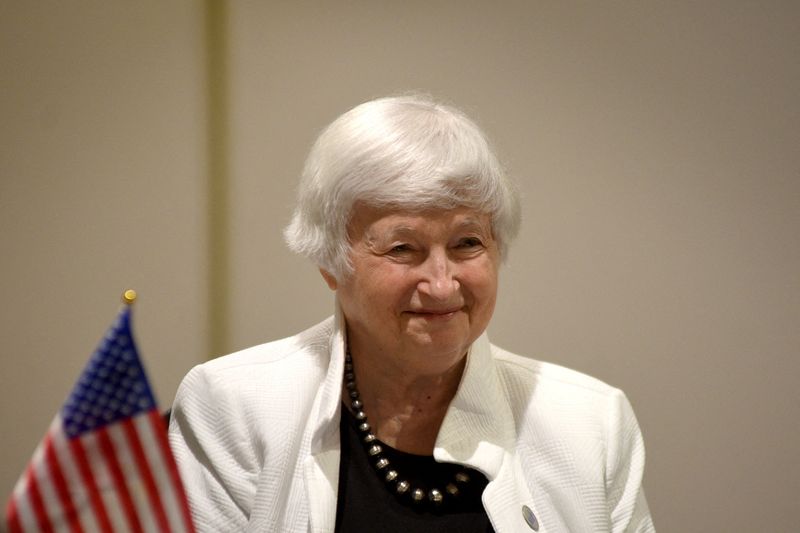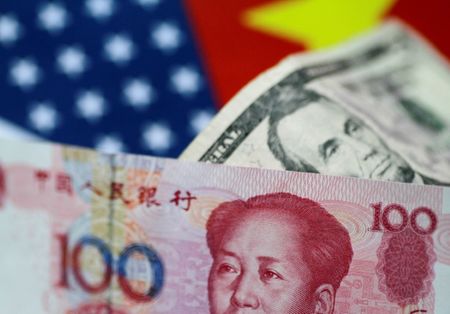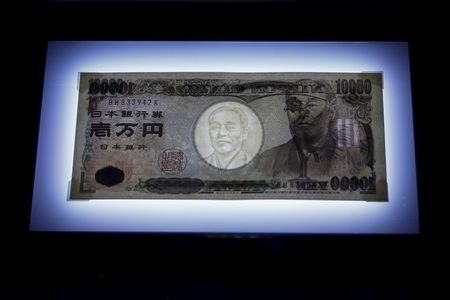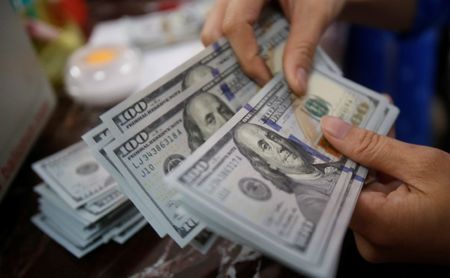The dollar dropped to a two-week low against the euro and a basket of currencies on Wednesday after data showed that U.S. private payrolls rose less than expected in August, adding to expectations that the Federal Reserve would stop raising interest rates.
Softening data this week has raised bets that the U.S. central bank has concluded its tightening cycle. It follows a brief increase in expectations for a November rate hike after relatively hawkish comments by Fed Chairman Jerome Powell on Friday.
This Friday’s jobs report for August will be closely watched for further confirmation that the tightness in the labor market is ebbing as interest rates remain relatively high.
“The dollar’s falling on the belief that the Federal Reserve has done enough,” said Adam Button, chief currency analyst at ForexLive in Toronto. “I think nonfarm payrolls will be the final ‘stick the fork in it’ moment if it’s soft.”
Friday’s jobs data is expected to show that employers added 170,000 jobs in August, according to the median estimate of economists polled by Reuters.
Private payrolls rose by 177,000 jobs last month, the ADP National Employment report showed on Wednesday. Economists polled by Reuters had forecast private employment would increase by 195,000.
The greenback also fell on Tuesday after data showed that U.S. job openings dropped to the lowest level in nearly 2-1/2 years in July as the labor market gradually slowed.
Markets now see an 89% chance of the Fed leaving rates unchanged next month, the CME FedWatch Tool showed, and a 46% probability of a hike in November.
Other data on Wednesday showed that the U.S. economy grew at a slightly less brisk pace than initially thought in the second quarter as businesses liquidated inventory.
Personal consumption expenditures due on Thursday will also give new clues on inflation.
The dollar index was last down 0.36% at 103.16, after earlier going as low as 102.92. It has fallen from 104.44 last Friday, the highest since June 1.
The greenback gained 0.23% to 146.195 Japanese yen, but remained below a 10-month high of 147.375 reached on Tuesday.
The euro was last up 0.38% at $1.0921. It has bounced from $1.07655 on Friday, the lowest since June 13.
The single currency was boosted by hotter-than-expected inflation in Germany, a day before highly anticipated consumer price data for the euro zone.
German consumer prices increased by an annual 6.4% in August, down from a reading of 6.5% in July but above the 6.3% forecast in a poll of economists surveyed by Reuters.
Spain’s consumer prices also rose to 2.6%, while core inflation fell to 6.1% from 6.2% in July.
The data “add to the uncertainty surrounding the near-term path of ECB policy. On balance, we think that the ECB will raise rates once more in this cycle,” said Hubert de Barochez, markets economist at Capital Economics.
Money markets raised their bets on a September rate hike from the European Central Bank, pricing in a 58% chance of a 25 basis-point move.
Meanwhile, Australian inflation slowed to a 17-month low in July, reinforcing the case for the Reserve Bank of Australia to hold rates steady at its policy meeting next week.
The Aussie dollar was last down 0.04% at $0.6478, after earlier dropping to $0.64495.
Source: https://www.investing.com/news/forex-news/dollar-licks-wounds-after-jobs-shock-aussie-dips-as-inflation-cools-3163762




